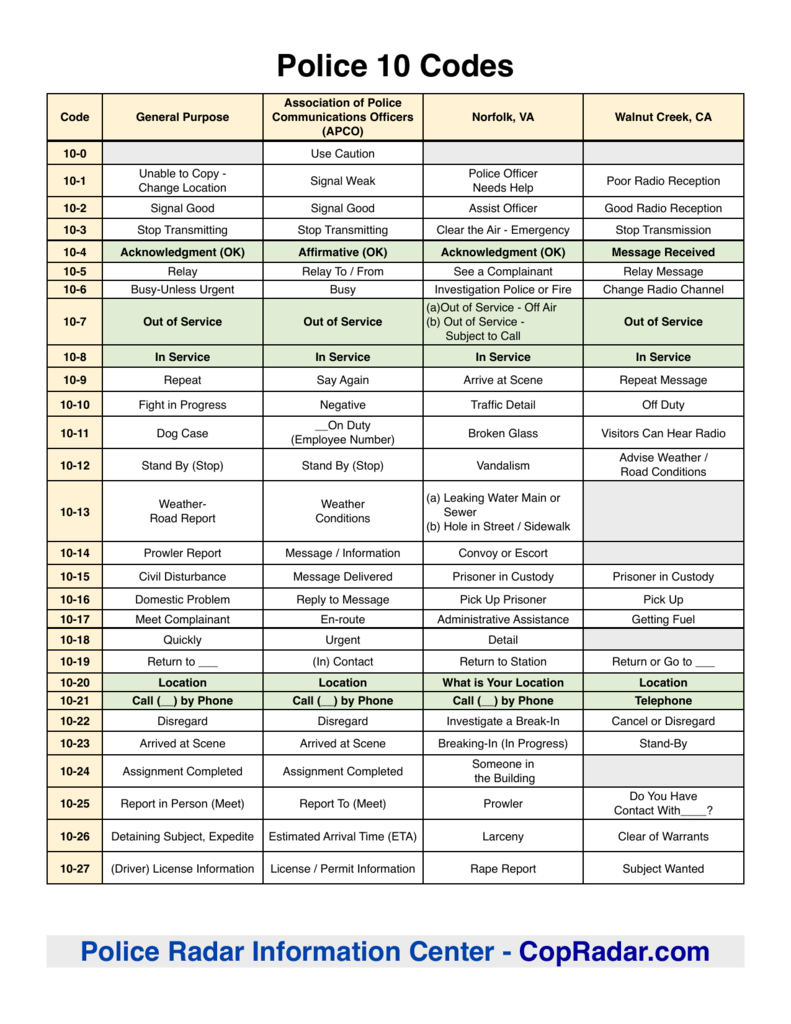In today's world, the role of the police has become increasingly significant as they are tasked with maintaining law and order, ensuring public safety, and protecting citizens' rights. The term "police" carries deep meanings that go beyond enforcing rules. This article will delve into the 12 meanings of police, exploring their multifaceted roles in society. Whether you're a student, researcher, or simply someone curious about the law enforcement system, this guide will provide valuable insights.
From historical origins to contemporary responsibilities, the police play a vital role in shaping communities. They are entrusted with upholding justice, preventing crime, and fostering trust between the government and the public. Understanding the nuances of their duties is essential for appreciating their impact on society.
As we explore the 12 meanings of police, we will examine various aspects of law enforcement, including their authority, expertise, and ethical responsibilities. By the end of this article, you will have a comprehensive understanding of how police officers contribute to maintaining a safe and secure environment for everyone.
Read also:Elise Stefaniks Husband Religion A Comprehensive Exploration
Table of Contents
- The Historical Evolution of Police
- The Role of Police in Society
- Meaning 1: Law Enforcement
- Meaning 2: Public Safety
- Meaning 3: Crime Prevention
- Meaning 4: Community Engagement
- Meaning 5: Emergency Response
- Meaning 6: Investigative Authority
- Meaning 7: Ethical Standards
- Meaning 8: Legal Compliance
- Meaning 9: Training and Expertise
- Meaning 10: Diversity and Inclusion
- Meaning 11: Technological Advancements
- Meaning 12: Accountability and Transparency
- Conclusion
The Historical Evolution of Police
The concept of policing has evolved significantly over centuries. Originally, communities relied on informal systems to maintain order. However, as societies grew more complex, formalized structures emerged. The modern police force can be traced back to the 19th century, with the establishment of the London Metropolitan Police in 1829. Since then, police forces worldwide have adapted to meet the changing needs of society.
Today's police officers are equipped with advanced tools and training to address modern challenges such as cybercrime, terrorism, and social unrest. Their role continues to evolve, reflecting the dynamic nature of contemporary issues.
The Role of Police in Society
Police officers serve as the backbone of public safety and security. Their responsibilities extend beyond enforcing laws; they act as mediators, counselors, and protectors. The primary goal of police is to create an environment where citizens feel safe and secure.
According to the Bureau of Justice Statistics, police departments in the United States alone handle millions of calls for service annually. This highlights the critical role they play in addressing emergencies, resolving disputes, and preventing crime.
Meaning 1: Law Enforcement
One of the most fundamental meanings of police is their role in enforcing laws. Officers are responsible for ensuring compliance with legal regulations and prosecuting violations. This includes traffic laws, criminal statutes, and municipal ordinances.
Key Responsibilities:
Read also:Dave Chappelle Kids A Comprehensive Look Into The Comedians Family Life
- Patrolling neighborhoods to deter criminal activity
- Investigating crimes and gathering evidence
- Arresting suspects and preparing cases for prosecution
Challenges in Law Enforcement
Police officers face numerous challenges in their daily work. Issues such as limited resources, community mistrust, and evolving criminal tactics can hinder their effectiveness. Addressing these challenges requires collaboration between law enforcement agencies and the communities they serve.
Meaning 2: Public Safety
Another critical meaning of police is their role in ensuring public safety. Officers are often the first responders in emergency situations, providing immediate assistance to those in need. Their presence serves as a deterrent to potential threats and reassures citizens of their security.
Data from the FBI's Uniform Crime Reporting (UCR) Program indicates that proactive policing strategies have contributed to a decline in violent crime rates over the past decade. However, maintaining public safety requires ongoing efforts and adaptation to emerging threats.
Meaning 3: Crime Prevention
Preventing crime is a proactive approach to maintaining law and order. Police officers employ various strategies to reduce the likelihood of criminal activity, including community policing, surveillance, and education programs.
Effective Crime Prevention Strategies:
- Community patrols and neighborhood watch programs
- Use of technology such as CCTV and predictive analytics
- Partnerships with local organizations to address root causes of crime
Impact of Crime Prevention
Studies show that proactive crime prevention measures can significantly reduce crime rates. For instance, cities that implement community policing initiatives often experience lower levels of property crime and improved community relations.
Meaning 4: Community Engagement
Building trust and collaboration with the community is essential for effective policing. Officers must engage with residents, listen to their concerns, and work together to address issues affecting public safety. This approach fosters mutual respect and cooperation.
Community engagement initiatives include town hall meetings, youth programs, and cultural competency training. These efforts help bridge gaps between law enforcement and diverse populations, promoting inclusivity and understanding.
Meaning 5: Emergency Response
Police officers are often the first responders in emergency situations, including natural disasters, accidents, and medical emergencies. Their ability to act quickly and decisively can mean the difference between life and death.
Emergency Response Protocols:
- Coordination with fire departments and medical services
- Rapid deployment of resources to affected areas
- Communication with the public to provide updates and instructions
Preparedness and Training
Police departments invest significant resources in training officers to handle emergencies effectively. This includes simulations, drills, and ongoing education to ensure they are prepared for any situation.
Meaning 6: Investigative Authority
Police officers possess the authority to investigate crimes, gather evidence, and identify suspects. Their investigative skills are crucial in solving cases and bringing perpetrators to justice.
Modern investigative techniques include forensic analysis, digital forensics, and DNA testing. These tools enhance the ability of law enforcement agencies to solve complex cases and ensure accountability.
Meaning 7: Ethical Standards
Maintaining high ethical standards is paramount for police officers. They are expected to uphold the law impartially, treat all individuals with respect, and avoid misconduct. Ethical policing builds trust and strengthens community relations.
Key Ethical Principles:
- Integrity and honesty in all actions
- Respect for human rights and dignity
- Accountability for actions and decisions
Addressing Ethical Challenges
Law enforcement agencies implement strict codes of conduct and oversight mechanisms to address ethical challenges. This includes internal affairs divisions, citizen review boards, and regular training on ethical dilemmas.
Meaning 8: Legal Compliance
Police officers must adhere to legal standards and regulations in their work. This ensures that their actions are justified and defensible in court. Legal compliance also protects the rights of citizens and prevents abuse of power.
Training programs focus on educating officers about constitutional rights, search and seizure laws, and due process. This knowledge equips them to perform their duties within the framework of the law.
Meaning 9: Training and Expertise
Continuous training and development are essential for police officers to remain effective in their roles. Training programs cover a wide range of topics, including tactical skills, cultural awareness, and crisis management.
Training Components:
- Use of force and de-escalation techniques
- Implicit bias and diversity training
- Technological proficiency in using advanced tools
Importance of Expertise
Expertise in specific areas such as cybercrime, terrorism, and forensic analysis enhances the ability of police officers to tackle complex challenges. Specialized units within police departments focus on developing these skills to address evolving threats.
Meaning 10: Diversity and Inclusion
Promoting diversity and inclusion within police forces is crucial for reflecting the communities they serve. Diverse teams bring varied perspectives and experiences, improving problem-solving and community relations.
Efforts to increase diversity include recruitment initiatives targeting underrepresented groups, mentorship programs, and inclusive policies. These measures help create a more representative and effective police force.
Meaning 11: Technological Advancements
Technology plays an increasingly important role in modern policing. Advances in data analytics, artificial intelligence, and communication systems enhance the efficiency and effectiveness of law enforcement operations.
Technological Tools:
- Body-worn cameras for transparency and accountability
- Predictive policing software to identify high-risk areas
- Mobile applications for reporting crimes and receiving updates
Challenges of Technology
While technology offers numerous benefits, it also presents challenges such as data privacy concerns and potential biases in algorithms. Law enforcement agencies must balance innovation with ethical considerations to ensure responsible use of technology.
Meaning 12: Accountability and Transparency
Accountability and transparency are vital for maintaining public trust in police forces. Officers must be held accountable for their actions, and their operations should be transparent to the communities they serve.
Measures to promote accountability include body cameras, public reporting of incidents, and independent oversight committees. These initiatives help build trust and demonstrate a commitment to ethical policing.
Conclusion
The 12 meanings of police highlight the complexity and importance of their roles in modern society. From enforcing laws and ensuring public safety to promoting diversity and using technology responsibly, police officers contribute significantly to maintaining order and protecting citizens.
We encourage readers to engage with this topic by sharing their thoughts and experiences in the comments section. Additionally, exploring related articles on our site can provide further insights into the world of law enforcement. Together, we can foster a deeper understanding of the vital work performed by police officers every day.


